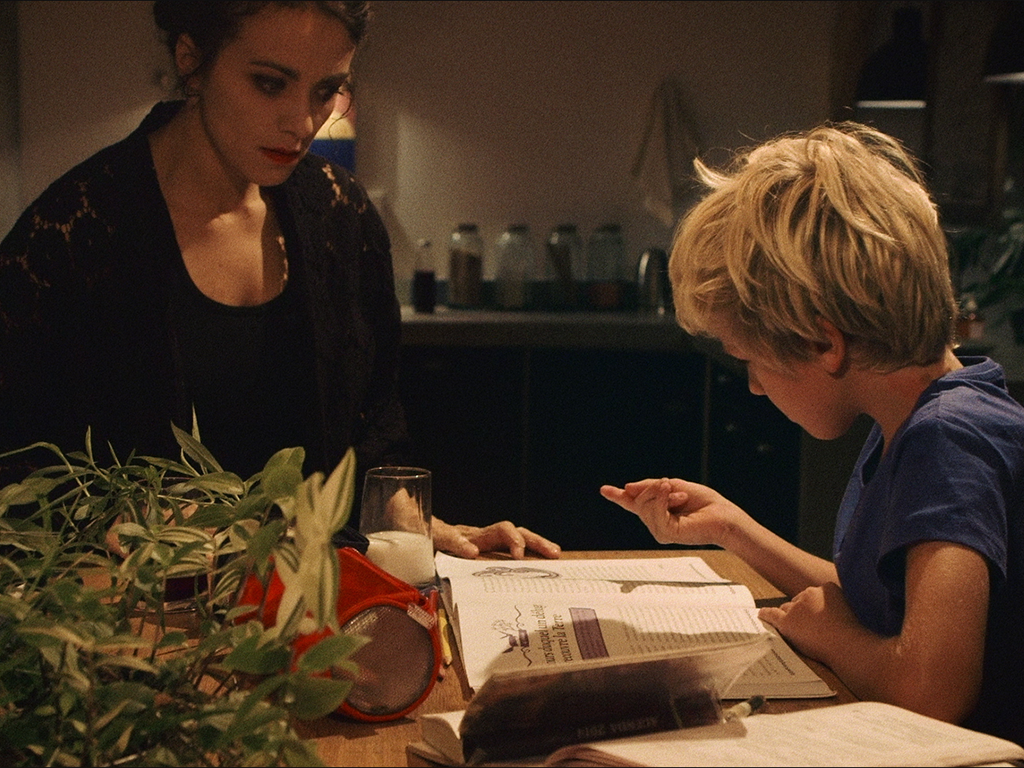A few months back, Laura sent me her short vampire film, "Upír," and I was blown away. Since she's a young female filmmaker and deals with many common industry struggles, I thought it would be nice to do an interview with her on the ins-and-outs of her process, background, and inspiration. Since Laura is French (and my French is shit), her answers have been translated to English by a friend.
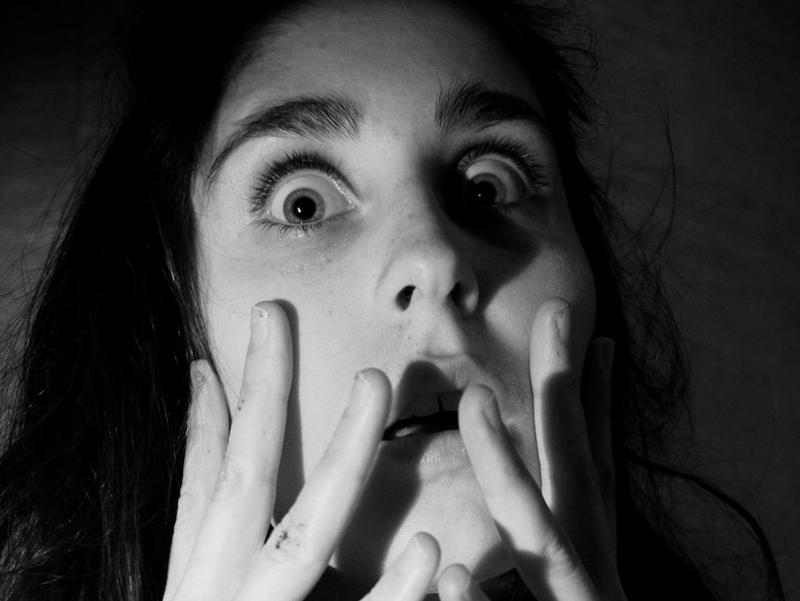
WiR: Tell me a little bit about your background. Did you study film at university?
Laura Rembault: I attended Panthéon-Sorbonne University – Paris 1, where I earned a Master 2 in Cinema. I spent 5 magical years at university and loved every minute. University in Paris gives you a chance to develop your general knowledge (philosophy, art history, cinema history) but there is very little practical teaching, so you need to take the initiative if you actually want to make movies.
I spent a lot of time in university watching old movies, rather than contemporary films. I was fascinated by German expressionism and the pioneers of primitive cinema, who remain true magicians to me to this day.
There was no digital equipment at school, but I had the opportunity to learn how to shoot with Super 8 cameras, which was very formative. Film is an unforgiving medium: if you over or under light, your reel comes back all white or all black. You make the mistake once, not twice.
Super 8 forces you to think much more than you would with digital and you have no way of checking your work until development. You have to be extremely careful! My director of photography, Vincent Margueritte, and I always spend a day talking about what I want visually, the aesthetics of the project. I show him bits of films, make lists, and he tells me what he pictured when reading the script.
Was there a particular film or person who first got you interested in filmmaking?
I had a professor in cinema history at university, Céline Scemama, an Antonioni and Godard specialist who really taught me to read, see, understand, and analyze - movies, images, characters, situations, etc. When I think about it, I owe her a lot because she allowed me to go above and beyond a simple viewing during those 5 years. She was passionate and exciting, true hallmarks of a good teacher.
But the very first person to introduce me to cinema was my papa. As a cinephile, and lover of westerns, he ensured that I grew up with John Ford, Howard Hawks, and John Wayne. "The Searchers" (Ford, 1956), "Red River" (Hawks, 1948), "Rio Bravo" (Hawks, 1959), "My Darling Clementine" (Ford, 1946), and "The Man Who Shot Liberty Valance" (Ford, 1962) are just a few films I remember watching as a kid.
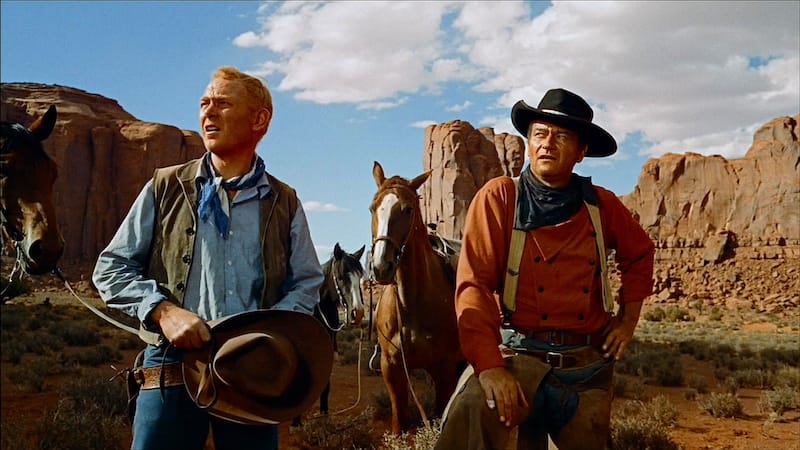
As for the classics — Charlie Chaplin, Buster Keaton, Orson Wells, Marcel Carne, Steven Spielberg — I think I must have seen their films 20-30 times in some cases.
Who are your biggest influences?
I have so many, but I'll try to be concise:
- Guillermo del Toro and his operator Guillermo Navarro - "Devil’s Backbone" (2001), "Pan's Labyrinth" (2006)
- Tim Burton, especially during his debut period - "Edward Scissorhands" (1991), "Sleepy Hollow" (1999)
- Vincente Minnelli (but not his musicals!) - "The Bad and the Beautiful" (1952), "Two Weeks in Another Town" (1962)
- Peter Jackson's Lord of the Rings series. I knew I wanted to make movies after I saw "The Fellowship of the Ring" (2001) as a 10-year-old.
- "Bellflower" (2011) by Evan Glodell. I don't understand why this film wasn't distributed more in theaters. It's my favorite film of the last 10 years (beside Edgar Wright's Cornetto Trilogy). Visually, it is gorgeous, out of the ordinary, unique.
Describe the process you went through to make "Upír."
Every time I write a script I try not to use my own life as inspiration too much, but there is always a basis in reality. "Upír" is a good example of how I use personal experience to ground my films.
I have been a babysitter for 6+ years and for a long time, I was unemployed so it was all I did. One time during the winter, I lifted Arthur, the little boy I was keeping, out of the bath and he told me, "Oh, your hands are cold like a vampire's." This made me laugh and at the same time, inspired me. I thought it would be fun to treat vampirism from the point of view of a little boy, convinced that his nanny is a vampire, so I took off with that idea.
"Upír" is a special movie partially because it's a second film. I read a lot about great directors who said that the second film was always the most complicated and I really felt that. The first film is indulgent, so it's okay if it's not perfect. It's also the first time you take the viewer into your universe. For the second, the viewer (presumably) already knows your universe, style, and ability, so there is more pressure. The 2nd film must be better or as good as the first.
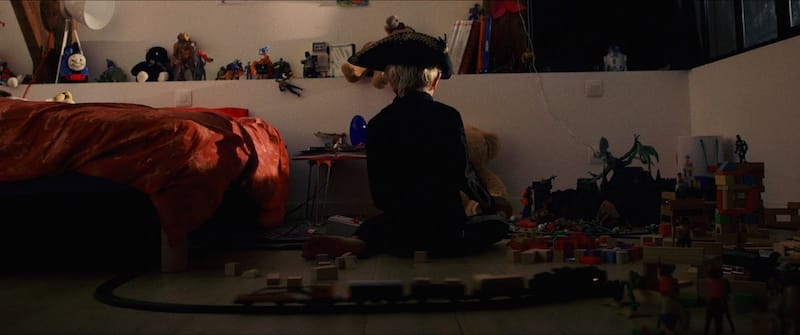
What was the budget for the film and what was the fundraising process like?
When I made "Upír," I was no longer a student so I did not have the opportunity to apply for student grants like I did with my first movie, "Pas de Noël pour Papa" / "No X-mas for Santa" (2013).
I applied for general grants, and none picked up the project. I do not know how it is elsewhere but in France, there are countless grants for first and third films, but not many for 2nd films. It's bizarre! I was left with the option to make an Ulule (similar to Kickstarter) campaign. I had already done one for my previous film, and I was embarrassed to ask for my friends and family's help again.
We started with a target of 4,000 euros and ended up collecting 5,325 euros. It was not an easy win, but it allowed us to bring to life this project that nobody wanted to fund.
Making a Ulule campaign is always a great moment of stress, because you are never certain of reaching your goal and if you do not get there, you don't get anything. We had to think about a budget that was reachable, but not too small to allow us to do what I had imagined. Money is the nerve of war if you do not have a producer to support you.
How did you find your actors and crew?
I will be frank: it was difficult to find an 8 year old boy. At first I wanted a brown-haired boy, and I despaired a little when I was unable to find one. My assistant director and friend, Thomas Estournel, told me about a little blond boy he had worked with on another project, but I was hesitant to meet him since I was set on a brown-haired actor. Even though he wasn't exactly what I was looking for, it was love at first sight when I met Thomas Millot. Aside from his blond hair, he was exactly what I wanted for the character of Arthur.
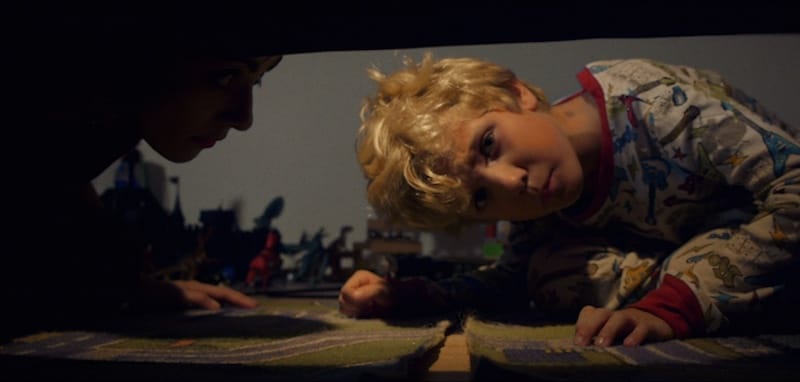
Casting the character of Vera was another story. I had committed to an actress that I didn't feel great about from the very beginning. She was beautiful, but I couldn't get genuine emotions from her. We didn't get along, she didn't invest enough time, and didn't take direction well. We had a big fight 5 days before the shoot, which was a total disaster! I know it's a bit of an exaggeration, but at this point, I thought of Coppola on the set of "Apocalypse Now" (1979). He was able to deal with a myriad of problems: an actor who had a heart attack, storms that destroyed his set, etc. I figured I could find someone to take over the role of Vera in 5 days. I knew it would be difficult, but it needed to happen or the film wasn't going to get made.
I reconnected with all the actresses I had seen in casting and that I had not retained, but none were available. Whenever I ran the casting for Arthur's parents, I really liked the performance of the actress who was supposed to play the mom, Virginia Atenza. I offered her the part of Vera by asking, "What have you got planned for the next 5 days?" Thankfully, she was able to pick up the role. She's great on screen and has a real complicity with Arthur; she totally nailed the role.
Unlike the process of finding actors, selecting my crew was simple. I already have a small core since I first started shooting. I can't imagine doing a project with Vincent Margueritte, my chief operator and friend. He really is "my eyes," and knows very quickly what I want.
Sylvain Bérard who edited and calibrated my two shorts also became a friend afterwards. He is one of my pillars in creation and knows how to channel me if I have worries during post-production. I trust him with closed eyes and believe we work extremely well together.
Also part of this core is Clémence Lacaille, my continuity supervisor, Thomas Estournel, my assistant director, and Nicolas Jean, the sweetest sound designer I know.
The rest of the crew changes a lot depending on the project and availability. I like the idea that making a film is teamwork. A director without a solid team is nothing. I come into the process with a script that is like a skeleton, and all my technicians with their talent and specialties help me dress it and give life to it. I welcome their ideas and see the entire process as a common brainstorm until the product is complete.
How many days did the entire process take - from shooting and editing to final cut?
From the first word of the script to the release of the film, the process lasted 1 year. I finished the script in the winter of 2014; we looked for the actors and assembled the team at the beginning of 2015; rehearsals took place in the spring; fittings and location scouting happened at the same time and ran until the beginning of June. We had the Ulule ca
mpaign for 1 month, until mid-July, and in August we filmed for 10 days.
10 days seems long and it is, but we were shooting with children and even volunteer projects have strict rules. In France, you cannot have underage actors work more than 6 hours per day, so we had to be on top of it.
We also had a lot of different sets, and shooting on all of them ate up time. We shot the first 5 days in Montreuil in a loft (a former KODAK laboratory) that we rented via Airbnb. Then we disassembled and filmed for 3 days in a school in the center of Paris. After that, we were a tiny bit ahead of schedule (which is rare), so we shot a scene that no longer exists in "Upír." I loved it so much and didn't want it to just sit in a drawer unused, so we turned it into a teaser for the film.
Once the shoot was finished, I let things sit over a fortnight. In the winter, I put on the editor's cap with Sylvain, who also worked on the calibration. The editing process lasted all winter, along with the rest of post- production. We held a premiere for the team and contributors at the St. André des Arts theater in mid-February 2016. The theater had 200 seats and was packed. It is only during the premiere when you know whether or not you did a good job.
What is it like being a female filmmaker in France? It feels like France is going through a new wave with female filmmakers at the forefront — like Mia Hansen-Løve, Rebecca Zlotowski, Katell Quillévéré, Julia Decournau, Céline Sciamma, Justine Triet.
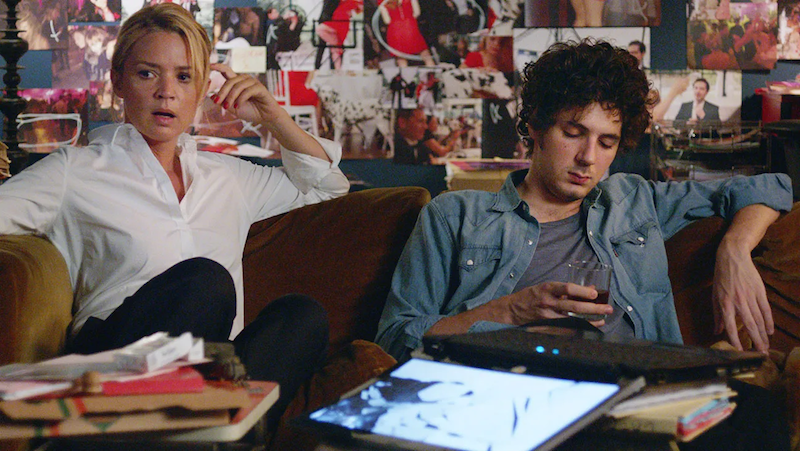
It's hard to be a female director. In France it is complicated, despite this emergence of female filmmakers, especially if you want to make genre fiction. It's already complicated to make movies when you're a woman, but when you want to make genre films, it's worse.
So yes, there are exceptions, but they are few and far between. I'm sorry I'm being very pessimistic, but it is what I feel. This feeling is due to my experiences in festivals. When I presented my short films "Pas de Noel pour Papa" / "No X-mas for Santa" (2013) and "Upír" (2016) in France it was always complicated. The female filmmakers are a minority and we have to prove ourselves every time.
When you write a script, you have no right to make mistakes. The same sentiment applies to the shooting process and all other filmmaking steps. When you present your film at a festival, you are told that your film is a typical woman's film, or that it has a very feminine point of view, which is something that annoys me. What I do is not defined by my sex. Nobody tells a male director that his film has a male point of view. No one will ever describe a film by a male director as "a typical man's film."
I would like us to stop defining female filmmakers and their work by the fact that they are women. Yes we’re women, and yes we make movies but first and foremost, we are all "just" directors.
One of my dreams is to direct a James Bond film. It won't happen because I’m not British, but I wish another woman would be given the opportunity. If a woman directed a James Bond film, it would prove that women are capable of making equally violent, intense films and maybe everyone would shut up about "typical woman's films." Jane Campion says: “Women directors struggle as men 'eat all the cake' in the movie world." Sadly, this is the absolute truth.
I would not say that it is exciting to be a female director in France at the moment, because despite the few filmmakers who break through and try to make things change it is still too much of a man's world. I have a friend who wanted to be a camerawoman and was told that it was not a woman's job. Apparently, you have to be tall, strong, and big to wear a camera and manipulate it. It leaves room for women – and it is such a cliché – in costume design, makeup, continuity and production roles. Because they are more "delicate," "female" positions.
It's very frustrating. And when you go to a festival, you feel you have to apologize for your presence because the room is filled with guys who are wondering what you're doing there, thinking that you are out of place... it's infuriating. Everyone isn't like that, and it's true that I have always been well-received abroad as a female director. Other countries are more open intellectually... Belgium, the USA, Germany, England, etc.
Just the fact that women direct, write scripts, and put themselves forward is already huge. That some win prizes and are recognized is a promising sign that things will improve, but it will definitely take time.

